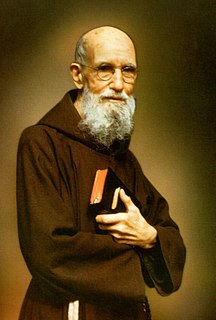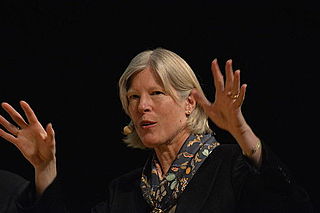A Quote by Mehmet Murat Ildan
He who has spent billions on churches, on mosques and on every kind of sanctuaries is guilty of not giving that money to the science! The path of sanctuary does not lead to God; the path of the faith does not lead to God; only the path of science leads to God! The bridge between man and the unknown God is not worshipping but it is science, only the science!
Related Quotes
All paths lead to God, but only one path will present you before God without fault and with great joy. Pick a path, any path—it will take you to God. Trust me: you will stand before Him one day. You will meet your Maker. You will see the face of Christ. There are many ways up the mountain, but only one will result in life instead of destruction.
Faith does not protect you. Medicine and airbags... Those are the things that protect you. God does not protect you. Intelligence protects you. Enlightenment. Put your faith in something with tangible results. How long has it been since someone walked on water? Modern miracles belong to science. Computers, vaccines, space stations... Even the divine miracle of creation. Matter from nothing... In a lab. Who needs God? No! Science is God!
I build molecules for a living. I can't begin to tell you how difficult that job is. I stand in awe of God because of what he has done through his creation. My faith has been increased through my research. Only a rookie who knows nothing about science would say science takes away from faith. If you really study science, it will bring you closer to God.
Many people correctly make the point that our only hope is to turn to God. For example, Charles Lindbergh, who said that in his young manhood he thought "science was more important than either man or God," and that "without a highly developed science modern man lacks the power to survive," . . . went to Germany after the war to see what Allied bombing had done to the Germans, who had been leaders in science. There, he says, "I learned that if his civilization is to continue, modern man must direct the material power of his science by the spiritual truths of his God."
Religion and science have nothing to do with each other, they're about different things, science is about the way the world works and religion is about [...] miracles. [...] And in any case, if you ask most ordinary people in church or in a mosque why they believe, it's almost certainly got something to do with the belief that God does wonderful things, that God intervenes, that God heals the sick, that God answers prayers, God forgives sins.
What it does remind us is that 'God' is not to be separated from the quest for the Kingdom of God and is not and cannot be the object of any detached 'scientific' contemplation. Heidegger's critique of onto-theology is also driving a wedge between speaking of God and the aims of science - not so as to get rid of God but rather to free God from a false objectification.
But in the end, science does not provide the answers most of us require. Its story of our origins and of our end is, to say the least, unsatisfactory. To the question, "How did it all begin?", science answers, "Probably by an accident." To the question, "How will it all end?", science answers, "Probably by an accident." And to many people, the accidental life is not worth living. Moreover, the science-god has no answer to the question, "Why are we here?" and, to the question, "What moral instructions do you give us?", the science-god maintains silence.
In vain do science and philosophy pose as the arbiters of the human mind, of which they are in fact only the servants. Religion has provided a conception of life, and science travels in the beaten path. Religion reveals the meaning of life, and science only applies this meaning to the course of circumstances.
There is a power in the soul, quite separate from the intellect, which sweeps away or recognizes the marvelous, by which God is felt. Faith stands serenely far above the reach of the atheism of science. It does not rest on the wonderful, but on the eternal wisdom and goodness of God. The revelation of the Son was to proclaim a Father, not a mystery. No science can sweep away the everlasting love which the heart feels, and which the intellect does not even pretend to judge or recognize.





































